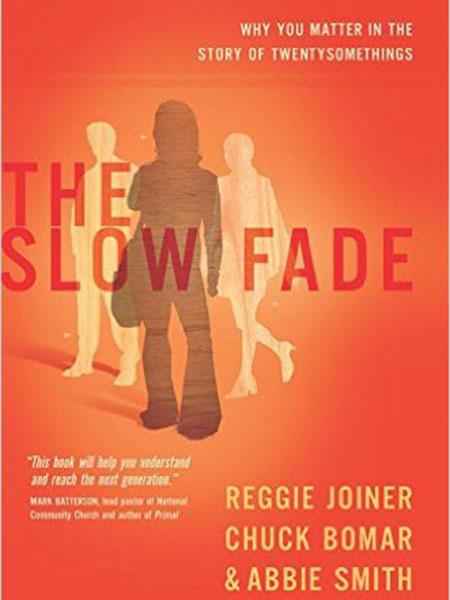The Slow Fade
For years churches have functioned through well-organized programming. For every demographic, there are events specifically geared towards their tastes and entertainment preferences, as well as their spiritual needs. For children there would be Vacation Bible Schools. For youth there would be Summer Camps and Game Nights. For adults there would be Pot Lucks and Picnics. And in all this time it has seemed to work well for everyone…except the Twenty-Somethings.
Students in college, and other believers of the same age, have been the toughest demographic to keep connected to the church for years. It seems that no matter how much the programming is improved to meet their tastes, they still seem to slowly fade away after High School.
Chuck Bomar, seasoned college minister in the church context, and co-author of this book has a theory for why this happens:
“College-aged people desire to be connected in deeper ways to the church as a whole. They want to know they belong in the church – not just one ministry- but they don’t know how. As I thought about this, our ministry’s roles in these people’s lives became clear. Our ministry was now about helping college-aged people move toward relational connection with older believers, beyond a program or service.”
The Book
In The Slow Fade, this phenomenon of college-aged people drifting away from the church is examined from three different angles: two college pastors fighting the slow fade and one twenty something experiencing the slow fade. Through their combined experiences and perspectives, the book helps its readers understand why college-aged students are fading away, why it is important to stop this fade, and how it can be over-come with the investment of older believers in these young believer’s lives.

How to use it
It can be difficult to introduce a new way of thinking and acting within an organization such as a local church. Even if you are in a place of authority such as the college-pastor of a church, where you could simply require change, you still want your team to be motivated and on-board. This book can be used to help staff with a certain mind-set about how to keep college-aged students connected to the church have a change of heart and become open to the idea of incorporating volunteer mentors from the church body (a sometimes messy and difficult strategy).
Once you have your staff on board and are ready to implement older believers from the church as volunteer mentors in the lives of believers, it can be hard to find enough volunteer recruits. A lot of people struggle with the idea of discipleship in the first place, and an older believer may find it even harder to understand how they could make a significant difference in the life of a college-aged believer. This book can be used to help older volunteers not only see how important it is that college-age believers are looked after, but how they can be a vital part of it.
Criticisms
This book is very specified in its goal and context. It wants to help older mentors get involved in the lives of college-aged believers so that they can stay connected to the church. If this concept does not relate to you, and your ministry to college-aged believers, it is of little benefit to you.
Also at times it can come very close to equating being connected to the church with spiritual health, and does not emphasize enough that college-aged believers need to have their relationships with Christ looked after and not just their relationship with the church.


